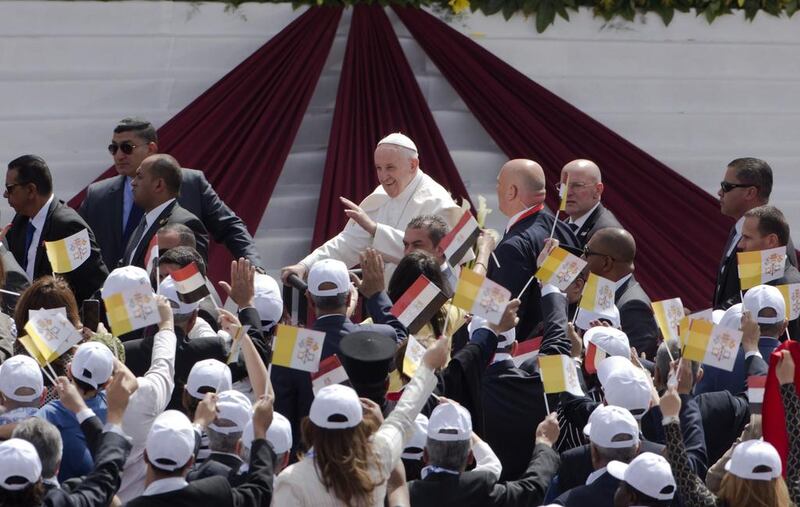A few weeks after two attacks on Coptic churches killed at least 47 people and injured scores more in northern Egypt, Pope Francis visited the country to talk peace, the need to foster tolerance and urgently tackle extremism. ISIL had previously claimed responsibility for the Palm Sunday bombings.
"Let us say once more a firm and clear 'No!' to every form of violence, vengeance and hatred carried out in the name of religion or in the name of God," he said during Al Azhar's International Peace Conference in Cairo, which was attended by hundreds of religious and political leaders, including the UAE's Muslim Council of Elders.
Pope Francis’s two-day visit sends a strong message that leaders of all faiths must work together to address extremist ideologies, which are threatening religions and driving wars and conflicts across the region. He visited Egypt at a time when its Coptic Christians – who make up 10 per cent of the mainly Muslim population – are facing increased threats from extremist groups, along with other religious minorities across the Middle East.
What the Egypt conference highlighted was the broad understanding of these challenges; where they come from and what is the best way to tackle them. Defeating extremism, above all, requires dedication and long-term planning and needs the participation of governments and individuals, particularly influential figures such as Pope Francis and Al Azhar’s grand imam Sheikh Ahmed El Tayeb. By standing together, Sheikh Ahmed and Pope Francis demonstrated that extremism is not something within or between religions – it is something outside both that all faiths must stand up to.
The UAE is doing its part in fighting extremist ideas and advocating tolerance. The country established the UAE Council of Tolerance and pioneered international cyber efforts to promote positive alternatives to extremism by setting up the Sawab Centre along with the US authorities to combat online propaganda by extremist groups, such as ISIL.
The country is also targeting younger generations by introducing moral education into public and private schools. Starting from the next academic year, pupils will receive 45 minutes of moral education a week, focusing on tolerance as a key value. Our example is for the whole region to follow.





